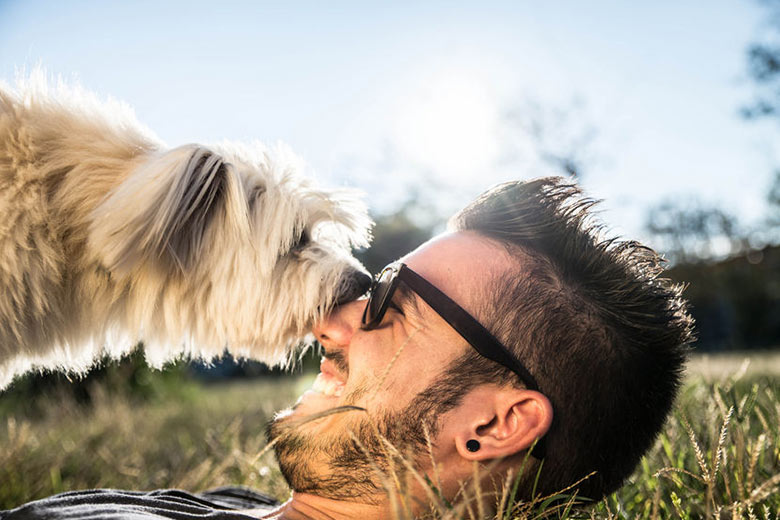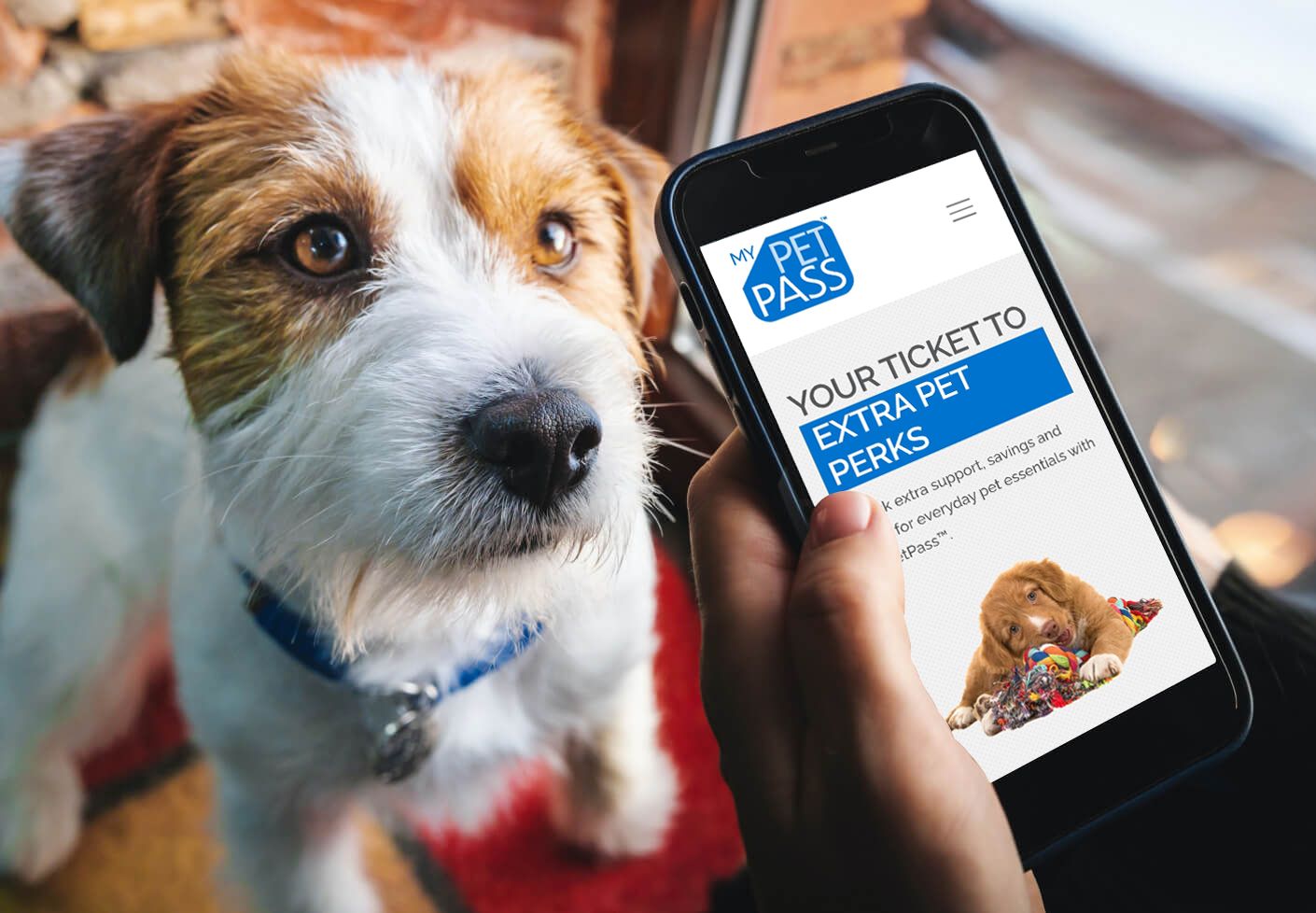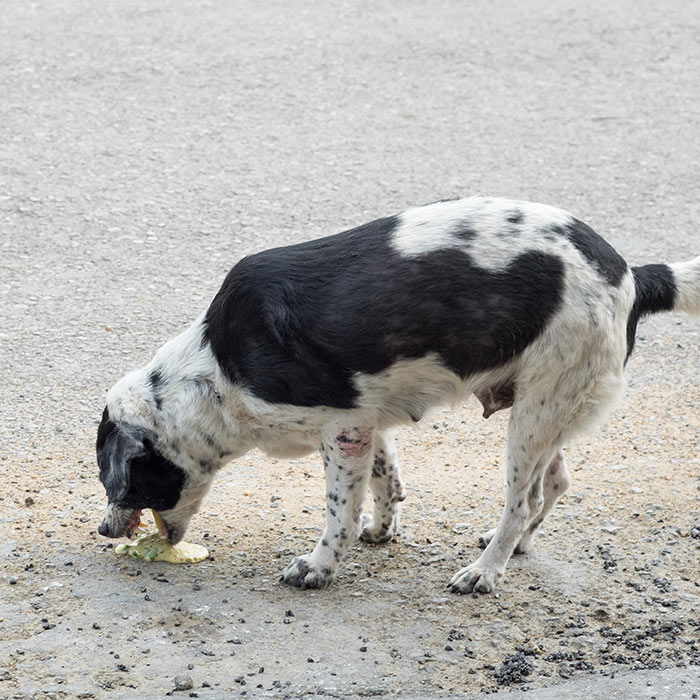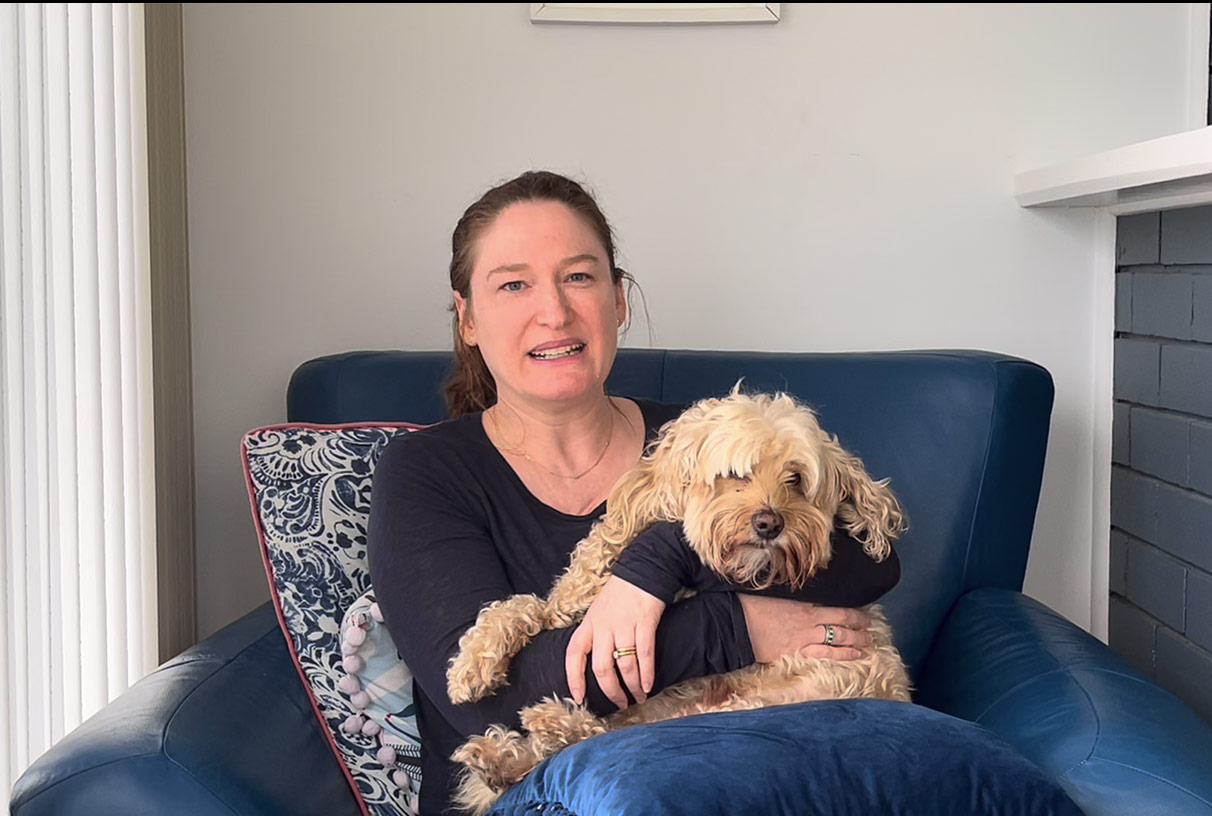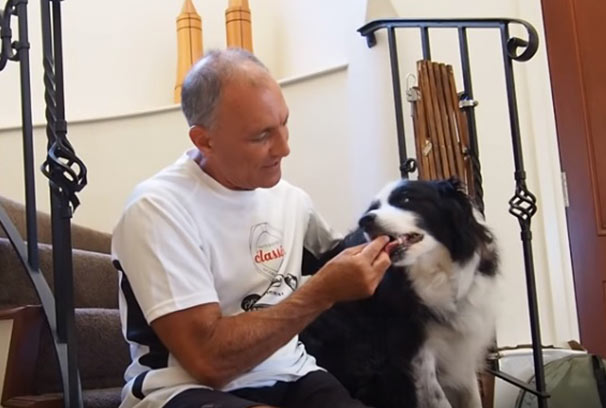How to tell if your dog is sick? Know the signs
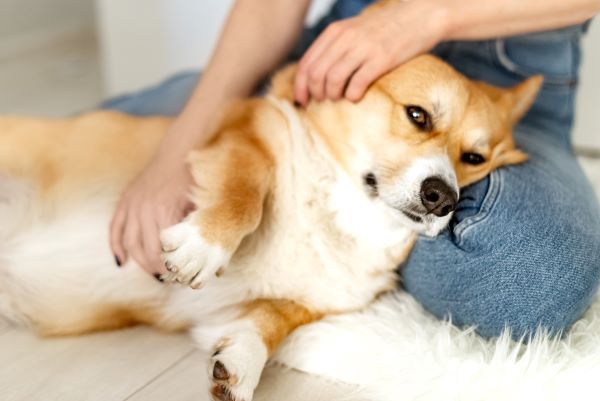
Importance of being attentive to your dog’s health
If only our dogs could tell us when they aren’t feeling well or are in pain! Knowing when your pet is unwell isn’t always easy. Sick dogs are notoriously good at masking symptoms, especially in the earlier stages of an illness. So by the time you realise that your dog may be sick, their discomfort may already be fairly advanced.
Regular check ups at the veterinarian are essential, but what can you do between vet visits to ensure your pet’s well-being?
You know your furry friend better than anyone else and can probably sense when they just don’t seem their normal self. Monitor them closely and if something feels not quite right, it is usually best to speak to a vet.
Common signs and symptoms to watch for
Other than relying on your gut feel, we recommend that you learn as much as you can about the most common symptoms displayed by sick dogs. Many of these symptoms are very subtle, so it’s really important to be aware of what they are and try to look out for them.
Signs and symptoms of illness in dogs
- Vomiting, upset stomach or diarrhoea (common symptoms and first signs of many illnesses)
- Coughing, sneezing, excessive panting, breathing difficulty or other respiratory problems
- Change in appetite or drinking habits
- Changes to urination or bowel movements
- Unexplained weight gain or weight loss
- Lameness or limping
- Trouble walking or climbing the stairs
- Lethargy, decreased energy, or excessive sleeping / hiding
- Sudden change in personality, behaviour or mood
- Abnormal whining, crying or other vocalisations
- Foul odour (from dog’s breath, ears or skin)
- Hair loss – with or without persistent itching, discharge, inflammation, excessive licking &/or scratching
- Eye changes – redness, dryness, runny eyes, cloudiness, squinting, holding eye closed, pawing or rubbing at the eye
- Pale, red or swollen gums
- Unexplained drooling
Key points:
- Watch out for unexplained changes to your dog’s normal activity level, temperament or mobility.
- Don’t assume potential warning signs of a dog illness are just “normal aging”, particularly for senior dogs.
When to take your dog to the vet
Importance of seeking veterinary care in a timely manner
If you notice any of the obvious signs, or even any subtle changes, that indicate that your pet may be unwell, it’s important to consult your veterinarian, who is your best resource to determine the underlying cause of the problem, rather than relying on “Dr Google” for a diagnosis.
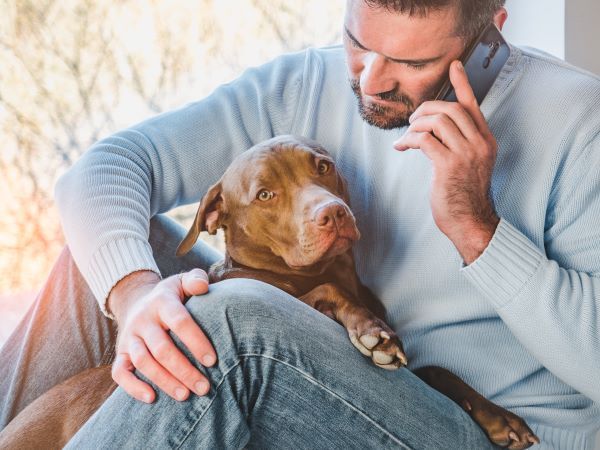
Signs that require immediate medical attention
Pets that exhibit any of the signs or symptoms below should be taken to the vet as a matter of urgency:
- Hard, distended abdomen
- Inability to urinate
- Excessive diarrhoea and/or vomiting (multiple times lasting more than a day)
- Seizures
- Lack of coordination/inability to stand
- Difficulty breathing
- Having a blue tint to the tongue and gums, pale gums
Signs and symptoms alone don’t generally indicate what problem is or how to treat it, and diagnostic testing by your vet is often necessary for this purpose. When your dog has serious condition such as urinary tract infection, kennel cough, kidney disease, diabetes mellitus or Cushing’s disease to name just a few, early diagnosis is key to a quicker recovery and/or more effective management.
Your pet may require diagnostic tests such as a complete blood count, urinalysis, electrolyte tests, heartworm tests or screenings for tick-borne diseases, or an ECG to check heart rhythm. These tests need to be performed by a trained veterinarian.
Unsure how serious it is?
Bow Wow Meow policyholders can get access to trusted vet care anytime, anywhere, at no additional cost. Connect to an experienced Australian registered vet via video call, 24/7. Whether it’s providing vet advice, setting up at-home treatment plans, or confirming if you need to visit a vet in person, you can get help when you need it.
Find out more about our pet insurance cover options.
Recommendations for routine check-ups and pet vaccinations
We can’t stress it enough: prevention is key when it comes to maintaining your dog’s health. An annual check-up with your veterinarian can help detect diseases in their early stages when treatment is likely to be most effective.
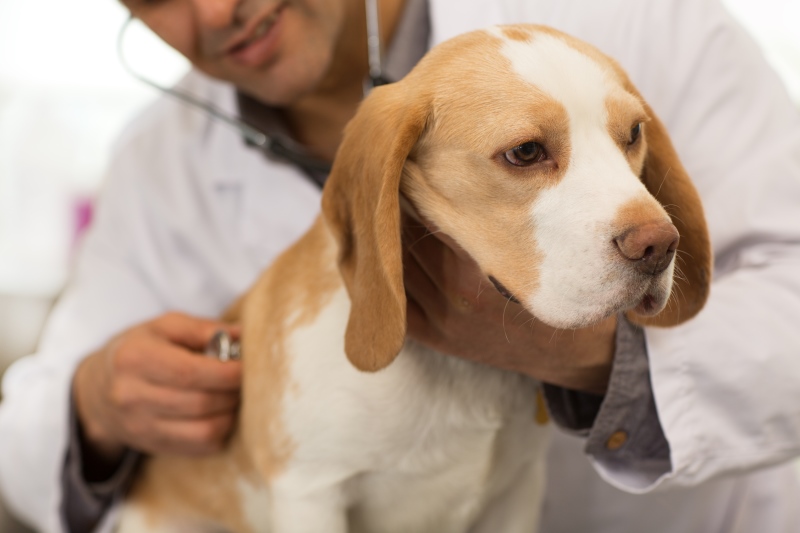
These vet visits can also potentially help you avoid significant medical expense in the long term, if a sick dog goes untreated. Routine check-ups and tests allow your veterinarian to establish your dog’s baseline health, which means both you and the vet are more likely to notice when something is amiss.
Keeping your dog’s vaccination schedule up-to-date greatly reduces the risk of them contracting a number of serious, and in some cases potentially deadly, health conditions.
Preventative Measures
You play a key role in helping your dog combat any ailments and stay as healthy as possible.
In addition to monitoring your pet’s health and behaviour closely, there are several really important things you can actively do to help your furry friend stay in tip-top condition.
Regular vet checks
- Take your dog to the vet at least once a year for a general checkup.
- When in doubt, go to the vet. Take your dog to the vet as soon as possible if you notice any unusual symptoms or signs.
Learn more: Finding the right vet
Vaccinate (and keep up to date)
Make sure your dog has all the necessary vaccinations based on their environment and lifestyle.
Learn more: A complete guide to dog and puppy vaccination schedules and costs
Use flea, tick and parasite prevention
Give your dog vet-recommended medications to protect them against pests and pest-borne diseases.
Learn more: Controlling & protecting against fleas
Good hygiene
- Washing your hands before and after preparing food is essential for preventing the spread of sickness and disease among all your family members, including your dogs.
- Regularly clean or tidy up your dog’s environment, such as floors, bedding and toys, to keep it free of harmful objects such as glass, grass awns or splinters, bacteria or parasites.
Good food choices
- Feed your dog a premium, high-quality, balanced and complete dog food appropriate to the dog’s age (puppy, adult, or senior), size and activity level. Avoid those containing artificial ingredients and fillers.
- For variety and additional nutrients, you can supplement dry dog food with fresh meat, tinned fish, vegetables and/or eggs, and adjust portion sizes accordingly to maintain an ideal body condition.
- Dogs often get sick from eating spoiled food, contaminated water or other substances that are toxic to dogs. Don’t let your dog eat anything that could make them sick.
Learn more: Different diets for dogs
Exercise
Make sure your dog receives sufficient exercise for their needs. Some breeds have higher exercise requirements than others, but all dogs require a certain amount of exercise to maintain their body condition and help regulate their weight. Provide mental as well as physical stimulation with games, interactive toys and puzzles and ongoing training.
Learn more: The importance of exercise for adult dogs
Brush and brush
Good dental care is essential for your dog’s long-term health and happiness, and this includes regularly brushing your dog’s teeth. When the teeth are cleaned frequently, the gums stay healthy and the risk of dental disease and infections is greatly reduced. Bad breath is often one of the first signs that their dental health is suffering, so be sure to look out for this.
Keep your dog’s coat in good condition by grooming them as recommended for their coat type, whether at home or professionally. Brushing the coat stimulates oil production in the skin, which helps keep the coat shining and healthy.
Learn more: Guide to brushing your dog’s teeth effectively
Common Health Issues in Dogs
The table below provides an overview of common health issues for most dogs, including dental disease, arthritis, and allergies. It also lists some of the common signs of each health issue and some of the steps to take to prevent them in the first place.
| Common dog illnesses | Signs & symptoms | Preventative measures |
| Ear infections | Shaking the head, scratching or pawing the ears, redness, discharge, moisture, crusting or bad smell |
|
| Skin allergies | Redness, itching, scratching, broking skin, secondary infections |
|
| Arthritis | Limping or lameness, favouring one or more limbs, difficulty with movements that were previously manageable, such as getting in and out of the car, slower to get on their feet, far less active than they used to be. |
|
| Dental disease | Gingivitis (inflammation of the gums), broken or cracked teeth, loose teeth |
|
| Cruciate ligament disease | Limping or lameness, stiffness on rising or after exercise, holding up the affected leg, toe touching, inability to jump properly, reduced exercise tolerance |
|
| Kennel cough | Persistent, dry cough with a honking sound, tiredness, sneezing, phlegm, fever, runny or crusty eyes, weight loss, nasal discharge. |
|
In a nutshell…
As a loving pet parent, you want to do all you can to prioritise your fur baby’s wellbeing. Therefore, it’s really important that you know what signs and symptoms to look out for so that you can address any health concerns in a timely manner.
If you suspect that your pet is unwell or just not their usual self, consult your vet for advice. Remember that pets tend to hide their symptoms as much as possible, so they may already be sicker than you think.
Just as importantly, don’t put off going to the vet for routine check-ups, vaccinations, dental checks, dietary and weight checks, and parasite prevention, all of which play a key role in ensuring your pet’s ongoing good health.
And finally, play your part in proactively managing your pet’s health. Optimising their diet, providing them with as much exercise as they need, brushing their teeth and coat regularly and maintaining good hygiene are some of the very beneficial things you should be doing as a responsible and loving pet owner.
Bow Wow Meow Pet Insurance can help protect you and your dog should an unexpected trip to the vet occur.
-
Find out more about our dog insurance options
-
Get an instant online pet insurance quote



